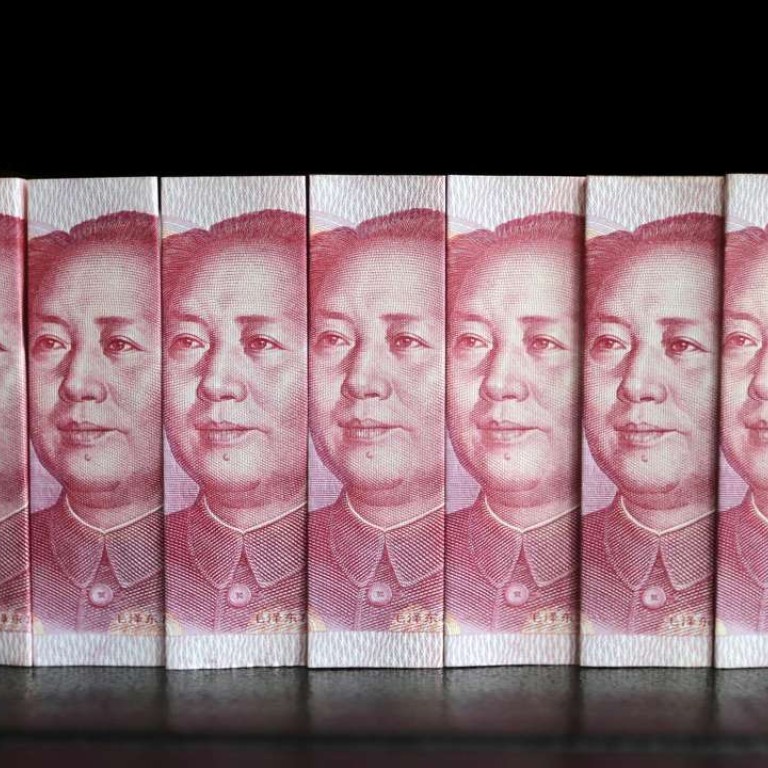
New tax to hurt China’s global plans for yuan
Beijing’s plan to introduce a new tax to combat currency speculation is likely to hit the yuan’s internationalisation, say analysts.
The yuan fell by the most in a month last week after Bloomberg reported that Beijing was considering introducing a Tobin tax to curb currency speculation.
People’s Bank of China deputy governor Yi Gang said such a tax was still “an academic subject”. In October, he had said the authorities were looking at ways to curb currency speculation, including a Tobin tax.
The possibility of such a tax led the yuan to fall early last week by 0.59 per cent, before it rebounded on Thursday following the US Federal Reserve’s decision to hold rates and slow down the pace of rate hikes this year.
The tax was first proposed by Nobel laureate James Tobin in 1972, from whom it gets the name.
Ben Jones, partner and tax expert at law firm Eversheds, said past experience shows such a tax would have a negative effect.
“Tobin taxes have had a chequered past, with powerful examples of unintended market disruption and genuine concerns about how such a tax can be effectively operated in a global economy,” Jones said.
“Sweden’s experiment with a Tobin tax in the 1980s ended disastrously, with significant trading activity moving from Sweden to other markets. More recently, attempts by the EU to introduce an EU-wide Tobin tax have floundered, a key problem being the design of an effective system that discourages migration from the market while avoiding extra-territorial taxation.”
Jones said that since yuan trading in China is different from other markets, such a tax would have the desired effect of dampening yuan speculation. “However, history has shown that the knock-on effects of such a tax can be significant and unexpected, and the legal and administrative framework of such taxes are often complex and burdensome. Ultimately, both outcomes are likely to create a more challenging business environment.”
Allan Chiang, dealing director at Tung Shing Securities, said it is possible Beijing would go ahead with such a tax plan as it wants to ensure currency stability.
“Beijing wants the yuan to become an international currency and be market-driven. However, the conditions in China are not suitable for a freely traded yuan. Since the one-off devaluation in August, the yuan has fallen substantially against the US dollar while there have been lots of speculative activities and capital outflow,” Chiang said.
“These have prompted concerns about speculative activities, and Beijing would try introduce all types of measures including Tobin tax to drive away speculators.”
Offshore yuan fell 2 per cent in the first week of this year, after depreciating 5.6 per cent over last year against the US dollar amid concerns over an economic slowdown and expectations of interest rate rises in the US.
It was only after the market intervention by the People’s Bank of China in mid-January and the weakening of the US dollar against other currencies since February that yuan has bounced back. As of Monday, offshore yuan had risen 1.32 per cent against the US dollar while onshore yuan was up 0.11 per cent.
The yuan’s 0.67 per cent rise against the US dollar in February helped arresting China’s foreign reserves decline to US$29 billion. That compares with a US$99 billion drop in January, when the yuan depreciated 0.38 per cent. In December, foreign reserves dropped US$ 108 billion drop when the yuan depreciated by 2.26 per cent.
“There is a strong relationship between capital outflow and drops in forex reserves with the yuan rate. Beijing has to worry about capital outflows and decline of the foreign reserves. It would prefer to see a slower pace for the internationalisation of the yuan instead of a rapid falling of the yuan,” Chiang said.
Hang Seng Bank executive director Andrew Fung, said Beijing only wants to use a Tobin tax as a standby measure.
“Central banks around the world carry out measures to defend their currencies. China is no exception, and would use all measures including the tax to achieve such a purpose. However, China will only use it in extreme situations when currency speculators seriously attack the yuan,” Fung said.

